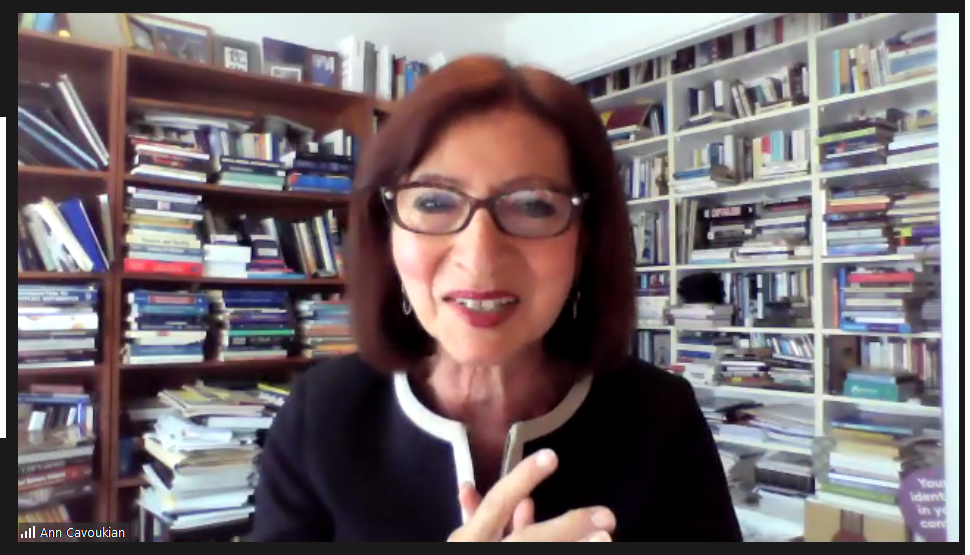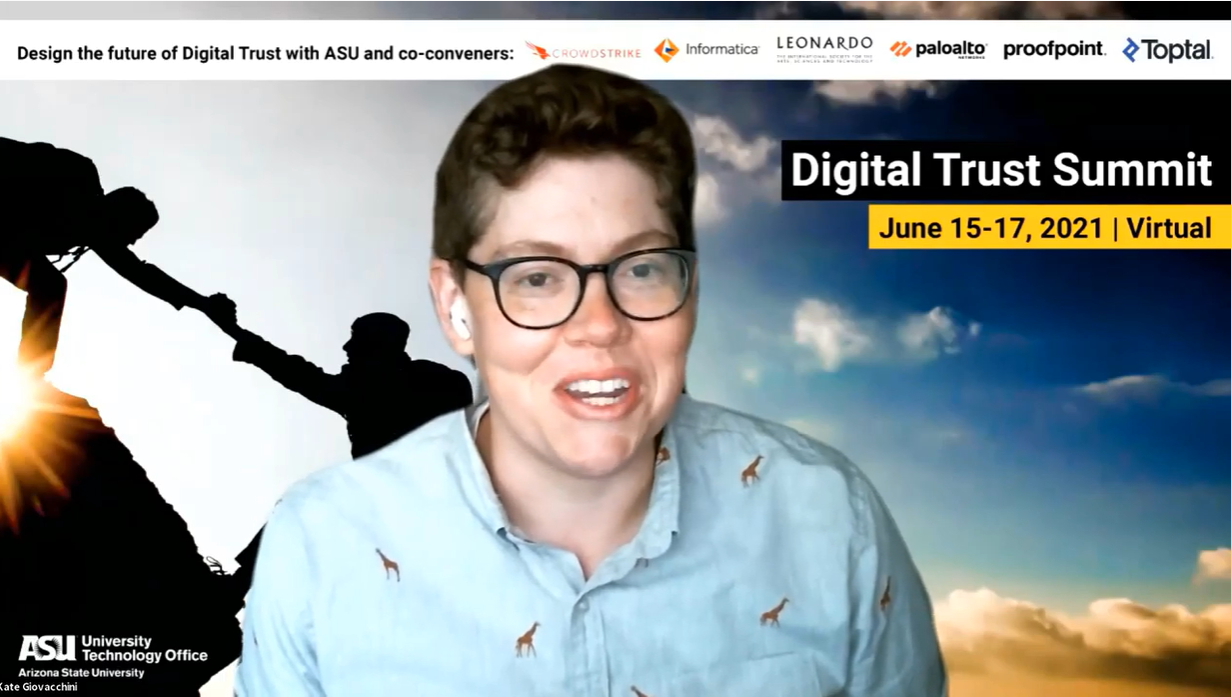Putting learners first at ASU’s Digital Trust Summit

Encompassing everything from cybersecurity to technology enablers like blockchain and more, digital trust centers on the confidence, flexibility and empowerment in the relationships between individuals and organizations.
What does that relationship look like between lifelong learners and their institutions? From June 15-17, digital trust leaders, changemakers, students, faculty and technologists gathered virtually to shape the future of data privacy, cybersecurity and learner empowerment at ASU’s Digital Trust Summit.

“It’s not about what can we do with data, but what should we do with data”

During the Summit’s opening keynote on Tuesday, The Future of Privacy Forum technologists Joanna Grama and Jim Siegl shared why Digital Trust needs to be a top priority for institutions and their privacy practices. “Digital Trust changes the way we can think and talk about information security and privacy in a way that we couldn’t before,” Grama said.
She explained that there are two schools of thought when it comes to privacy: what we can do with data and what we should do with data, the latter being the question that professionals should really be asking themselves. Grama provided the following advice for the role of institutions and data privacy: “If you think about your institution as a steward [for students and faculty], it sometimes makes the questions about ‘what can we do’ versus ‘what should we do’ much easier to digest,” said Grama.
Grama and Siegl also touched on accessibility — a major theme of the Summit — explaining that when you think about privacy, you have to think about it in a way that works for all users. “Technology is such a great equalizer for marginalized populations, and that’s a component of digital trust,” said Grama.
Students share why they value digital trust
On Wednesday morning, the Summit welcomed six Sun Devils — with areas of study including global management, journalism, education technology, biology and global health — who all shared brilliant perspectives on the role of data privacy, accessibility, surveillance and trust in their lives during the Student Panel: Digital Trust Now & in the Future.
Here, we’re spotlighting each of our students and some of the powerful reflections shared by students during the Summit:
"As we build this future of digital trust, I really hope there is a better infrastructure in place so that student-run organizations are better able to engage with education in school communities at all levels." - Nathaniel Ross, Bachelors in Biological Sciences, Political Science, Applied Quantitative Science, and History
“I recognize that it takes a community for a student to be successful. I would like to trust that an institution is using my data for those purposes.” - Luisanna Granillo, Master of Education in
Learning Design and Technologies
“Remember the idea of transparency. Focus on making things for the people we’re making them for and not for our own ease or convenience or profit.” - Rachel Howard, Bachelors in Journalism and Mass Communication
“Be mindful of your own data. We’re sharing cookies left and right, but ‘too many hands in the cookie jar’ is applicable not only in the real world, but also in the digital world.” - Jagan Pandari, Masters in Global Management (Concentration: Data Science)
Exploring the relationship between technology and humans

But as we look forward to shaping the future of digital trust with the changemakers of tomorrow, we must also reflect on the past. Futurist Adah Parris and cyborg anthropologist Marques Anderson spoke to attendees on Wednesday morning, encouraging them to think about how we are molding the relationship between technology and humans and how to consider ethics with it all.
How might we approach individual and collective sovereignty in the 21st century? Parris explained that “as we develop and unfold solutions that we focus on, we approach and conceptualize offerings by activating the ability to revisit the past, acknowledge the present and co-design the future.”
Parris and Anderson shared five elements that can lead to holistic consideration of what Digital Trust can be:
What do we need to leave behind to create a value statement?
How do we breathe in a new way of understanding and approach a hypothesis for change from old models to new models around Digital Trust?
How might we grow and what tools, technologies and models can be produced?
How do we find our flow around these topics to integrate new rituals, habits and behaviors?
How might we ground this knowledge and activate Digital Trust into society with deep thought and consideration, as well as empathy?
In order to consider what the future looks like, Anderson encouraged participants to push themselves beyond their edges. “As we try to define and hypothesize for change in the era of Digital Trust,” said Anderson. “We really must discuss the relationship between the digital and the human as inseparable.”
Why Privacy by Design is essential

Contrary to what some may think, privacy isn’t about secrecy; it’s not about having something to hide. "Privacy is all about control of your personal information,” said Cavoukian. “You have to have the freedom to choose who you wish to share your data with, to whom you wish to have it disclosed, and you are the only one who knows the context associated with your data."
Cavoukian explained that there has never been greater concern for privacy than there has been in the past two years. With ethical concerns about surveillance, the rise of internet enabled devices, and more, she explained that the need for privacy and security are critical. “You must have both,” said Cavoukian. “We can have both, and we must resist attacks on this."
Doing and learning about the work

In the end, attendees of the Digital Trust Summit were challenged to think about what the future of digital trust can and should look like, after hearing from students, experts in the field and colleagues from a wide range of specialties. “I love the notion that we might be intentional about keeping the things we’ve learned in the last year and figuring out opportunities to even deepen these practices or keep the practices and refine them and put them to incredible use,” said Kidwell.
Watch all of the sessions from the Digital Trust Summit on YouTube and CareerEDGE (via the event agenda page)!